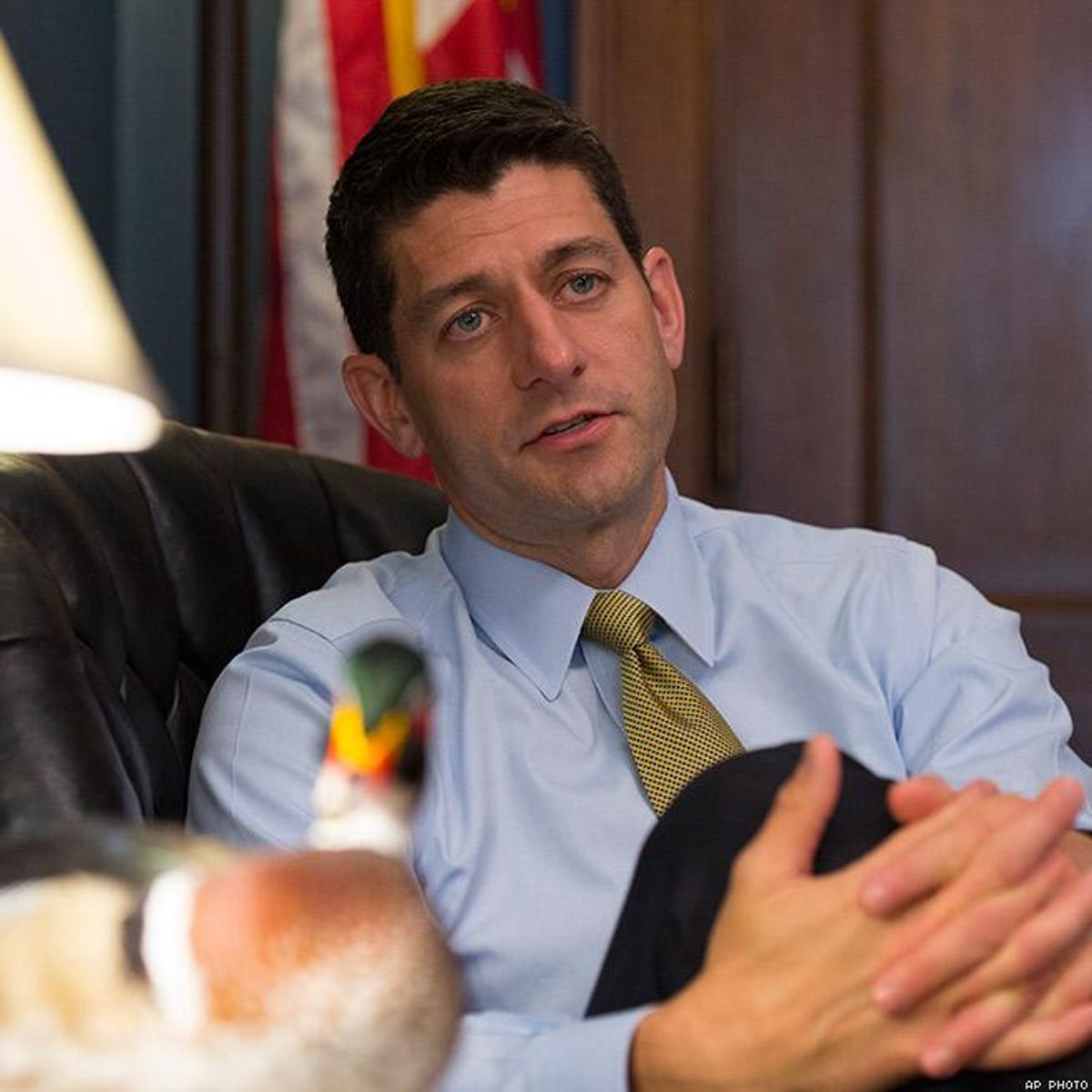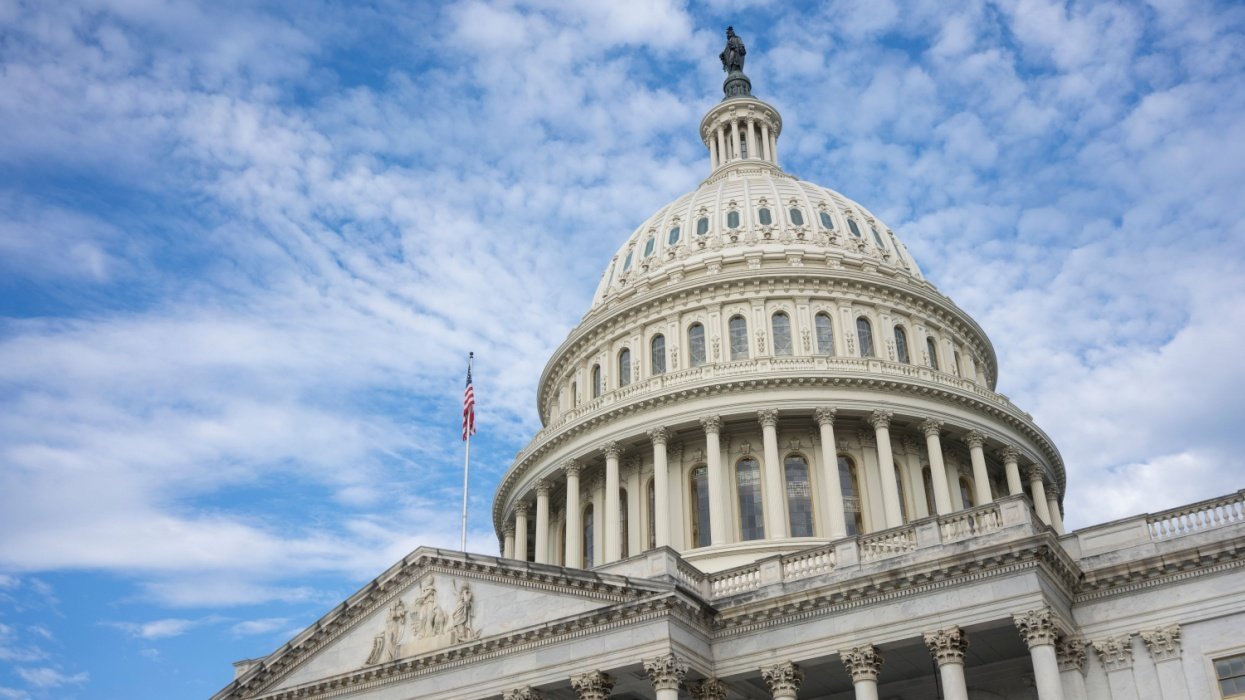U.S. Rep. Paul Ryan of Wisconsin, who now says he'll accept the post of House speaker if his fellow Republicans unite behind him, promises to be no improvement over the outgoing speaker, John Boehner, where LGBT issues are concerned.
Ryan, who had said he didn't want the job, today said he'll take it if certain conditions are met, The Washington Postreports. "If you can agree to these requests and I can truly be a unifying figure, then I will gladly serve," he said at a press conference after meeting privately with House GOP Conference.
Ryan apparently wants "a free hand to lead without a constant fear of intra-party reprisals" and "to delegate some of the job's travel and fundraising demands," the Post reports, based on information from Ryan's allies.
House Republicans have been divided over the choice of a new speaker, who is drawn from the party holding a majority in the chamber. Boehner, a staunch conservative who is nonetheless mistrusted by the far right, is leaving the speakership and Congress altogether at the end of this month. Kevin McCarthy of California, the majority leader, was for a time the front-runner for the speakership, but he withdrew from the race October 8, to the surprise of many.
Ryan has a conservative record that might be expected to make him a unifying candidate, but some of the farthest-right House members are still skeptical. "There's still a race for the speakership," Rep. Ken Buck of Colorado, a member of the ultraconservative Freedom Caucus, told the Post. And a fellow Freedom Caucus member, Rep. Daniel Webster of Florida, said he's still in that race.
However, Utah's Jason Chaffetz, another representative who had sought the speakership, today threw his support behind Ryan.
While Boehner has been no friend to LGBT Americans -- among other things, he's refused to bring employment nondiscrimination legislation to a vote -- Ryan will likely be no better and could be worse. Ryan, who was first elected to the House in 1998 and was Mitt Romney's running mate in 2012, has often emphasized his conservative approach to economic matters, but his record on LGBT concerns and other social issues is just as far to the right.
He voted twice to amend the U.S. Constitution to ban same-sex marriage, voted against LGBT-inclusive hate-crimes legislation, voted against repealing "don't ask, don't tell," and voted to ban adoption by same-sex couples in the District of Columbia, over which Congress exerts some control. An exception to his general record: In 2007 he voted for a version of the Employment Non-Discrimination Act that would have banned discrimination based on sexual orientation but not gender identity -- but earlier he had tried to kill the bill.
In 2013, he reversed course somewhat, saying he had come to support gay couples' right to adopt and would probably vote for ENDA (now replaced by the more comprehensive Equality Act) but would need to do further study of transgender-inclusive nondiscrimination legislation.
Quotes from Ryan on some key issues:
On marriage equality: "Marriage is not simply a legal arrangement between individuals. The institution of marriage is an integral part of our civil society and its significance goes well beyond eligibility for benefits and similar considerations. Its future should not be left to a few overreaching judges or local officials to decide."
On the DADT repeal: "I talked to a lot of good friends of mine who are combat leaders in the theater, and they just didn't think the timing of this was right to do this when our troops were in the middle of harm's way in combat." However, after the repeal, Ryan conceded that it was a done deal and there was no point in trying to reverse it.
The speaker generally does not vote on legislation or sponsor it, but he or she sets the agenda for each congressional session, and is next in line after the vice president to become president, should the president die or become unable to perform the duties of the office.

















































































